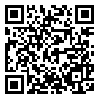Volume 2, Issue 2 (2014)
CLRJ 2014, 2(2): 57-78 |
Back to browse issues page
Download citation:
BibTeX | RIS | EndNote | Medlars | ProCite | Reference Manager | RefWorks
Send citation to:



BibTeX | RIS | EndNote | Medlars | ProCite | Reference Manager | RefWorks
Send citation to:
SalimiKouchi E, Shafiee S. Comparative Reading of “I Turn Off the Lights” and “Banned Booklet” According to the Theory of the Gynesis in Women Writing. CLRJ 2014; 2 (2) :57-78
URL: http://clrj.modares.ac.ir/article-12-11493-en.html
URL: http://clrj.modares.ac.ir/article-12-11493-en.html
1- Assistant Professor, Department of French Language and Literature, Isfahan University, Isfahan, Iran
2- M.A. Student, Department of French Language and Literature, Isfahan University, Isfahan, Iran
2- M.A. Student, Department of French Language and Literature, Isfahan University, Isfahan, Iran
Abstract: (11304 Views)
Throughout the history, women writers, regardless of geographical, historical and cultural variations, have always been faced with the same concerns and challenges. Women's literature depicts a world based on the masculine priorities and logic concerns. So, due to disturbing laws written by men, women writers have tried to use "feminine aesthetic" and find a proper language to express their concerns and aspirations. In this way, they were capable to represent a clear picture of the woman as it should be.
In Iranian and Italian contemporary literature, many women authors have created works based on women's issues. Among these works, we can mention the works of Zoya Pirzad and Alba Deses Pedes who narrate, in a specific manner, the same story about women's challenges and concerns. This paper applies "Theory of the Gynesis in Women Writing" to these two novels formed in two different geographical and cultural origins, and aims to answer the question of how the common characteristics of feminine writing engender fundamental similarities in plot, narrative and characterization? What we can say with certainty is that the characteristics and common factors in both text and meta-text of these two feminine writings engender a realistic and measured image of "women situation" in these two societies
Keywords: Theory of the Gynesis, Feminine writing, Zoya Pirzad, Alba Deses Pedes, Comparative literature
Article Type: Research Paper |
Subject:
Story of adaptive|-
Received: 2013/07/2 | Accepted: 2013/12/17 | Published: 2014/09/23
Received: 2013/07/2 | Accepted: 2013/12/17 | Published: 2014/09/23
| Rights and permissions | |
 |
This work is licensed under a Creative Commons Attribution-NonCommercial 4.0 International License. |








